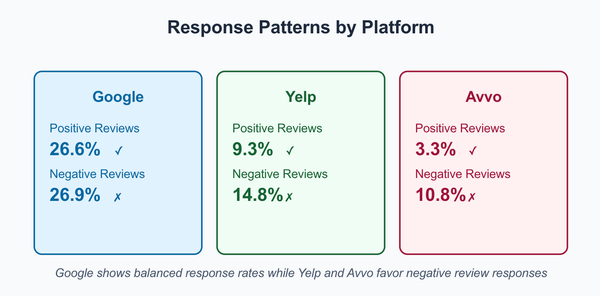How to Find the Right Lawyer for Your Case

We all know that legal issues can be stressful, whether facing a personal matter or a business dispute. But how do you figure out which lawyer is the right fit for your case? How do you find a lawyer that understands your specific needs? Or one that has the right experience for your situation?
Where do you start? Should you be looking for someone who specializes in your type of case? How do you compare different lawyers? What if they don’t seem like the right fit after your first meeting? In this article, we’ll cover everything you need to know to feel confident about choosing the right lawyer.
You’ll learn:
- How to find the right lawyer for your case
- Why choosing the right lawyer matters
- When you should decide to hire a lawyer
- How to research and compare lawyers
- Red flags to watch out for that might suggest a lawyer isn’t the right one for you.
By the end, you’ll feel more confident about making the right choice.
Why is it important to find the right lawyer for your case?
Why does it matter if you find the right lawyer? Can’t any lawyer handle your case? Well, not really. You wouldn’t go to a general doctor for a heart problem, right? The same idea applies to lawyers. Each lawyer has a different area of expertise, and having the right one on your side can make all the difference.
Lawyers specialize in different areas—some focus on family law, others on business, criminal defense, or personal injury. Having a lawyer who knows the ins and outs of your type of case gives you an advantage. The right lawyer doesn’t just help you win a case—they guide you through every step of the process. They’ll explain things in a way that makes sense, offer solutions that fit your needs, and help you make smart decisions.
When should you decide to hire a lawyer?
It’s not always easy to know when you need a lawyer. Should you get one as soon as a legal issue pops up? Or wait until things get serious? The truth is that hiring a lawyer at the right time can save you a lot of trouble down the road.
You should hire a lawyer when:
- You’re involved in a legal dispute that’s becoming complicated.
- Large amounts of money, property, or risk are involved.
- You don’t fully understand your legal rights.
- You’re signing a contract or agreement with significant consequences.
- The other party already has legal representation.
- You’re facing potential criminal charges or lawsuits.
- You need legal advice to avoid future problems.
- You feel overwhelmed by the legal process or unsure about the next steps.
- You’re starting a business or making a major business decision.
- You need help drafting or reviewing legal documents.
- You’ve been injured and are considering legal action.
- You’re handling a family matter with legal implications, like divorce or child custody.
5 things to look out for when choosing a lawyer
Here are five important things to keep in mind when making your choice:
Relevant experience
Not all legal cases are the same, so you need a lawyer with experience in your specific type of case. If you’re dealing with a family issue like divorce or child custody, you want a lawyer who focuses on family law. A corporate lawyer is your best bet if it’s a business-related matter. Ask about their experience with cases like yours and how they’ve handled similar situations.
Good communication skills
You need a lawyer who can explain complex legal terms in a way that makes sense to you. Lawyers who use too much legal jargon or don’t respond promptly can make the process even more stressful. Look for someone who listens to your concerns, answers your questions clearly, and keeps you updated on your case.
Transparent fees
Legal fees can be a big concern for many people, so it’s important to understand how much a lawyer charges upfront. Some lawyers work on a flat fee, while others charge by the hour. Some might even work on a contingency fee, meaning they only get paid if you win the case. Make sure you understand the fee structure before you commit. You don’t want any surprises down the road.
Availability
Your lawyer should have enough time to focus on your case. If they seem too busy or distracted, that’s a red flag. You don’t want to hire someone handling too many clients and can’t give your case the attention it deserves. During your consultation, ask how much time they expect to dedicate to your case and how often they will update you. The last thing you want is a lawyer who disappears when you need them most.
Reputation and reviews
Look for reviews and testimonials, or even ask for references from past clients. A lawyer’s reputation can tell you a lot about how they handle cases, treat clients, and what results they typically get. A lawyer with a solid track record and positive reviews is a good sign they will handle your case professionally and effectively.
How can you research and compare lawyers?
Finding a lawyer isn’t as simple as picking the first one that shows up in a Google search. You’ll want to do some homework to ensure you’re choosing the right person for your case. But how exactly do you go about researching and comparing lawyers? Here are a few steps to guide you:
Start with online research
A good place to begin is by searching online for lawyers in your area who specialize in the case you’re dealing with. Most law firms have websites where you can read about their services, the types of cases they handle, and their background. Sites like lawyers ratings can also help you find lawyers based on their location and specialty. These sites often include reviews and ratings from previous clients, giving you an idea of their reputation.
Ask for recommendations
Word of mouth is still one of the best ways to find a good lawyer. Ask friends, family, or colleagues if they’ve worked with a lawyer who they’d recommend. Personal recommendations can give insight into how lawyers handle cases, their communication style, and how they treat clients. It’s a more trustworthy way to narrow down your options.
Set up consultations
Most lawyers offer an initial consultation, often for free or at a low cost. This is your chance to meet the lawyer, ask questions, and get a feel for how they’ll handle your case. Don’t hesitate to ask about their experience, fees, and how they approach cases like yours.
What are the red flags to watch out for when choosing a lawyer?
Here are some red flags to keep an eye out for:
Poor communication
If a lawyer takes too long to return your calls or emails, that’s a bad sign. You want someone responsive and keeps you updated on your case. If they’re hard to reach, imagine how frustrating it will be once your case is in full swing.
Overpromising results
Be wary of lawyers who guarantee a specific outcome or make your case sound like a guaranteed win. While a good lawyer should be confident, no one can predict the exact outcome of a legal case. Lawyers who promise less may not be realistic about the challenges ahead, which can lead to disappointment later on.
Lack of experience
If a lawyer doesn’t have experience handling cases like yours, that’s a major red flag. Legal expertise varies, and you want someone who has successfully managed cases similar to yours. Always ask about their specific experience and how they’ve handled similar cases.
Unprofessional behavior
Trust your instincts here. If a lawyer seems disorganized, arrives late to meetings, or is rude or dismissive during your consultation, it’s a clear warning sign. You need someone who treats you and your case with professionalism and respect. A lawyer’s behavior in the early stages can give you a good idea of how they’ll handle things moving forward.
Pressure to hire immediately
If a lawyer pressures you to sign a contract or hire them on the spot, take a step back. You should never feel rushed into making a decision. A good lawyer will give you time to think things over and won’t push you into a commitment before you’re ready.
Ready to find the right lawyer?
By now, you’ve learned the key steps to finding the right lawyer for your case. From knowing when to hire one to knowing what to look out for and even spotting red flags, you’re better equipped to make an informed decision.
But why do all the hard work on your own? At Lawyers Rating, we make it easier for you to find, compare, and connect with top-rated lawyers in your area. Our platform offers real reviews from clients, detailed lawyer profiles, and the information you need to make the best choice. Whether you need help with family law, business disputes, or any other legal matter, we’re here to guide you to the right lawyer.
Ready to get started? Visit Lawyers Rating today and find the perfect lawyer for your case confidently.
FAQs
How long does it take to find and hire a lawyer?
It depends on your needs, but the process can take anywhere from a few days to a few weeks, depending on how much research you do and how quickly you can meet with potential lawyers.
What should I bring to my first meeting with a lawyer?
Bring any relevant documents, such as contracts, agreements, or court papers related to your case. Also, prepare a list of questions to ask the lawyer.
Can I hire a lawyer for just part of my case?
Yes, some lawyers offer “limited scope representation,” where they assist with specific parts of your case, like reviewing documents or giving legal advice, without representing you fully in court.
How can I check if a lawyer has a good reputation?
You can check reviews online, ask for referrals from previous clients, or visit your state’s bar association website to see if the lawyer has any disciplinary actions against them.
Is it better to hire a lawyer from a large or small firm?
Both have their pros and cons. Large firms may have more resources, while small firms or solo practitioners offer more personalized attention. It depends on your case’s complexity and your preference.
What happens if I can’t afford a lawyer?
If you can’t afford a lawyer, options include legal aid services, pro bono lawyers, or payment plans. You can also look for lawyers who offer free consultations or work on a contingency basis.





